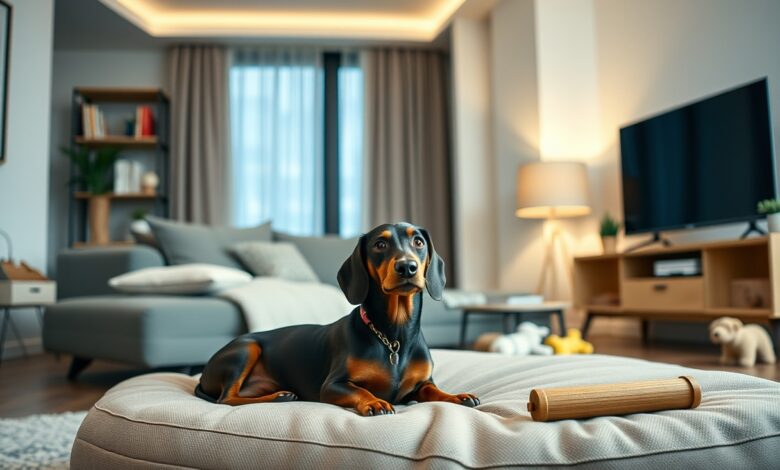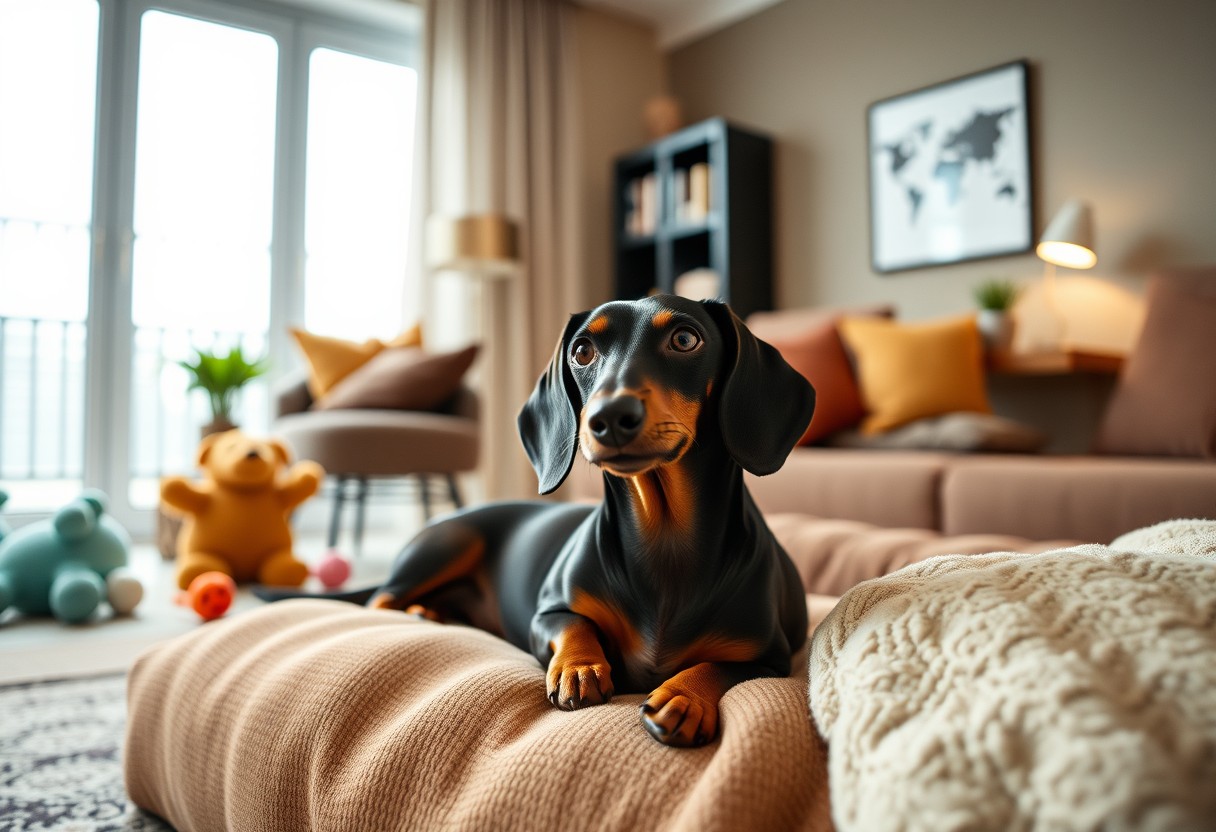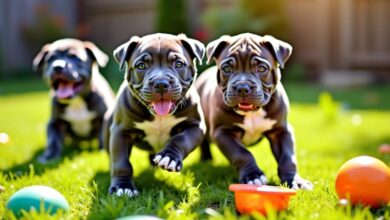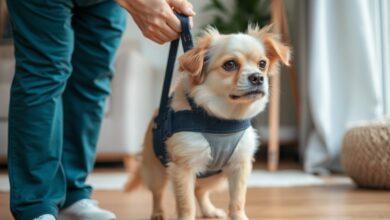Are Wiener Dogs Good Pets for Apartments?

Many potential pet owners wonder if wiener dogs, or Dachshunds, are suitable companions for apartment living. These small, affectionate dogs typically have lower exercise needs than larger breeds, making them well-suited for smaller spaces. However, you must consider their predisposition to health issues related to their unique body shape. Understanding their temperament and energy levels will help you determine if a wiener dog can thrive in your apartment environment while providing you with the companionship you desire.
Key Takeaways:
- Size Compatibility: Wiener dogs, also known as Dachshunds, are small in size, making them suitable for apartment living where space may be limited.
- Exercise Needs: Despite their small stature, they require regular exercise; daily walks and playtime are necessary to keep them healthy and content.
- Noise Levels: Dachshunds can be vocal, so it’s important to consider their barking tendencies, especially in shared living environments.
Characteristics of Wiener Dogs
The Dachshund, commonly known as the Wiener Dog, is a small breed with a unique appearance and personality traits. This breed is characterized by its long body and short legs, giving it a distinctive silhouette. They come in three coat types: smooth, long-haired, and wire-haired, each displaying a colorful array of coat patterns. Wiener Dogs are spirited and have a strong instinct to dig, which can stem from their hunting background. Understanding their distinct characteristics will help you determine if they are suitable for apartment living.
Temperament
For those looking for a loyal and playful companion, Wiener Dogs are a great option. They are known for their curious and friendly nature, making them excellent pets. However, it’s crucial to note their stubborn streak, which can lead to challenges in training. Their affectionate demeanor allows you to form a closer bond with them, but be prepared for their barking tendencies, as they can be quite vocal when they feel threatened or bored.
Size and Weight
Weight is another factor to consider when thinking about adopting a Wiener Dog. Typically, they weigh between 16 to 32 pounds, depending on whether you choose a standard or miniature variety. Their compact size makes them suitable for small living spaces, yet they need ample room to play and stretch their legs.
Temperament also plays a role in the size and weight of Wiener Dogs. They may be small, but their energetic personalities can make them feel larger than life. It is crucial to provide ample exercise opportunities to keep them physically and mentally stimulated. Despite their small stature, they can be determined and brave, often displaying confident behaviors that can sometimes lead them to challenge larger dogs. Ensuring your living space accommodates their energy levels while considering their training needs is critical for happy, healthy pet ownership.
Apartment Living Considerations
Any dog can adapt to apartment living, but certain factors play a crucial role in determining whether a wiener dog is the right fit for your space. You’ll need to consider your living arrangements, the size of your apartment, and how often you can provide exercise and playtime for your furry friend. Understanding these aspects will help ensure a harmonious living situation for both you and your pet.
Space Requirements
For wiener dogs, a small to medium-sized apartment is generally suitable. They don’t need vast spaces to roam but do benefit from designated areas for play and lounging. Ensure your home is free of hazards and provides comfortable spots for your wiener dog to unwind.
Noise Levels
Living in an apartment with a wiener dog may come with some noise considerations. While they can be vocal, their tendency to bark depends on their temperament and training. It’s necessary to provide proper socialization to reduce unnecessary barking, which can disturb neighbors and create tension in close living quarters.
A wiener dog can indeed be quite vocal, making them prone to barking at sounds outside or when they get excited. Pay attention to early training and consistent routine to manage their barking tendencies. Engaging them in outdoor activities can also help in reducing excessive noise. Recall, a well-exercised wiener dog is typically a quieter dog, which will greatly enhance your apartment living experience.

Exercise Needs
Despite their small stature, Wiener Dogs have specific exercise needs that you should consider if you live in an apartment. They require regular physical activity to maintain their health and mental well-being. While their energy levels can vary, consistent exercise is vital to prevent behavioral issues that arise from boredom or pent-up energy.
Daily Activity Levels
Levels of activity for Wiener Dogs typically range from 30 minutes to an hour each day. Walks, play sessions, and interactive games can keep them engaged and happy. It’s crucial to structure their exercise routine to avoid excess weight gain and support their overall health.
Indoor vs. Outdoor Exercise
To keep your Wiener Dog healthy and stimulated, you should balance both indoor and outdoor exercise. Engaging your pup inside can be effective, but outdoor activities provide vital socialization and exposure to different environments.
This balance is important because outdoor exercise allows your Wiener Dog to interact with other dogs and explore new surroundings, which help with their social skills. On the other hand, indoor exercise can be accomplished through games like fetch, hide-and-seek, or utilizing puzzle toys. Always ensure their indoor sessions are enriching to keep them mentally stimulated, as a lack of engagement can lead to behavioral problems. Note, a tired Wiener Dog is a happy Wiener Dog!
Training and Socialization
For successful integration of your Wiener Dog into apartment life, effective training and socialization are crucial. These small dogs tend to have big personalities, which can lead to behavioral issues if not properly taught. Establishing a training routine early will set the tone for your pup’s behavior, helping them adapt to their surroundings and curbing any unwanted traits.
Basic Training Tips
To ensure your Wiener Dog thrives in an apartment, focus on these basic training tips:
- Use positive reinforcement to encourage good behavior.
- Establish a consistent routine for potty training.
- Practice basic commands like sit, stay, and come.
- Engage in short, frequent training sessions for improved focus.
Perceiving training as a fun and rewarding experience will strengthen your bond.
Importance of Socialization
On the other hand, socialization is necessary for your Wiener Dog to develop proper behavior around different people and environments. This is especially important in the sociable atmosphere of an apartment setting, where they may encounter a variety of stimuli that could be overwhelming without prior exposure.
Plus, without adequate socialization, your Wiener Dog may exhibit fear or aggression towards unfamiliar situations or individuals. Introducing them to various people, pets, and experiences will help promote a well-adjusted and confident demeanor. Do not forget, the more positive interactions they have, the less likely they will develop problematic behaviors like barking or separation anxiety. Prioritize both training and socialization to ensure a happy and harmonious life together.
Health Considerations
Your Wiener Dog’s health is paramount, especially in apartment living where space is limited. They are generally healthy, but specific health issues due to their unique body structure can arise. Regular veterinary check-ups and a nutritious diet can help maintain their health and ensure they thrive in your living environment.
Common Health Issues
On the whole, Wiener Dogs are prone to certain health concerns, including intervertebral disc disease due to their elongated spine, as well as obesity-related issues. Additionally, problems such as eye disorders and dental disease can also affect them. Being aware of these potential conditions enables you to monitor your pet’s health proactively.
Grooming Needs
An important aspect of caring for your Wiener Dog is understanding their grooming needs. Regular brushing is important to keep their coats healthy and free from mats, especially for those with longer fur. They also require ear cleaning and dental hygiene to prevent infections and dental problems.
Health is closely linked to grooming for your Wiener Dog. Regular grooming helps you keep an eye on their skin and coat condition, which can signal underlying health issues. Make sure to schedule professional grooming every few months depending on their coat type. Moreover, brushing your dog’s teeth regularly can prevent serious health problems, such as periodontal disease, and contributes to their overall well-being.
Pros and Cons of Having a Wiener Dog in an Apartment
Now that you are considering a Wiener dog as a pet in your apartment, it’s crucial to weigh the advantages and disadvantages. The unique traits of this breed can significantly influence your living experience. Below is a comprehensive overview of the pros and cons to assist you in making an informed decision:
| Pros | Cons |
|---|---|
| Compact size | Prone to barking |
| Low exercise needs | Stubborn behavior |
| Affectionate nature | Can suffer from separation anxiety |
| Minimal grooming required | Health predispositions |
| Adaptable personality | May not be ideal for small children |
Advantages
One of the main advantages of having a Wiener dog in your apartment is their compact size, making it easier to accommodate them in smaller living spaces. Additionally, they require minimal exercise, which is ideal for busy individuals or those with limited outdoor access. Their affectionate nature can enrich your life, providing you with companionship and joy.
Disadvantages
An important consideration when adopting a Wiener dog is their potential for excessive barking, which could disturb your neighbors. Additionally, their stubborn behavior can make training more challenging, requiring patience and persistence on your part.
Disadvantages include their tendency to experience separation anxiety, which can lead to destructive behaviors if left alone for extended periods. They are also known for having health issues related to their long backs and short legs, such as intervertebral disc disease. If you have small children, a Wiener dog may not be the best match due to their sensitivity and potential to snap when feeling threatened. Assessing these factors is vital to ensuring a harmonious living environment.
Final Words
The answer to whether Wiener dogs are good pets for apartments largely depends on your lifestyle and living situation. With their small size, minimal exercise needs, and affectionate nature, they can be an excellent fit for apartment living. However, it’s crucial to ensure they receive regular walks and mental stimulation to keep them happy and healthy. If you can provide a nurturing environment and meet their needs, a Wiener dog could be a delightful addition to your home.





